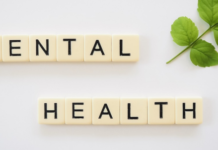In the hustle and bustle of our fast-paced world, where deadlines loom large and the pressure to keep up is relentless, it’s easy to neglect our mental health. However, the importance of prioritizing mental well-being cannot be overstated. Mindful living offers a holistic approach to navigating the demands of modern life while fostering a healthy and resilient mind.
Understanding the Fast-Paced World
The rapid pace of our lives, driven by technology, work demands, and societal expectations, has left many of us feeling overwhelmed and stressed. The constant barrage of information, coupled with the pressure to succeed, has taken a toll on our mental health. It’s crucial to recognize the impact of this fast-paced lifestyle on our well-being before we can make positive changes.
The Power of Mindful Living
Mindful living is a lifestyle that encourages being fully present in the moment, paying attention to thoughts and feelings without judgment. It draws inspiration from mindfulness meditation practices, which have roots in ancient traditions such as Buddhism. By incorporating mindfulness into our daily lives, we can develop a heightened awareness of our thoughts and emotions, leading to a more intentional and fulfilling existence.
Practical Steps to Prioritize Mental Health
- Start with Mindful Breathing: Begin your journey towards mindful living with simple breathing exercises. Focus on your breath, inhaling and exhaling slowly. This helps bring your attention to the present moment, calming the mind and reducing stress.
- Create Tech-Free Zones: Unplug from technology regularly. Designate specific times or areas in your home where electronic devices are off-limits. This break from constant connectivity allows your mind to relax and rejuvenate.
- Set Realistic Goals: Establish achievable goals that align with your values. Break them down into smaller, manageable tasks. This not only boosts productivity but also prevents the overwhelming feeling that often accompanies larger objectives.
- Practice Gratitude: Take a moment each day to reflect on the positive aspects of your life. Gratitude has been linked to improved mental health and increased life satisfaction. Consider keeping a gratitude journal to capture moments of joy and appreciation.
- Connect with Nature: Spend time outdoors, whether it’s a walk in the park or simply sitting in your backyard. Nature has a calming effect on the mind and can help alleviate stress. Use this time to practice mindfulness and appreciate the beauty around you.
- Establish Mindful Eating Habits: Pay attention to your eating habits by savoring each bite and eating without distractions. Mindful eating promotes a healthier relationship with food and can contribute to improved overall well-being.
- Prioritize Sleep: Quality sleep is essential for mental health. Create a bedtime routine that signals to your body that it’s time to wind down. Ensure your sleep environment is comfortable and free from distractions.
The Impact of Mindful Living on Mental Health
By incorporating mindful living practices into our daily routines, we can experience a profound positive impact on our mental health. Mindfulness has been associated with reduced stress, anxiety, and depression, as well as improved focus and emotional regulation.
In a world that constantly demands our attention, prioritizing mental health through mindful living becomes a powerful tool for creating balance and resilience. Taking small, intentional steps each day can lead to significant improvements in overall well-being, allowing us to navigate life’s challenges with a clearer mind and a more compassionate heart. As we embrace the principles of mindful living, we empower ourselves to live authentically, fostering a deep sense of contentment and fulfillment amidst the chaos of the modern world.



